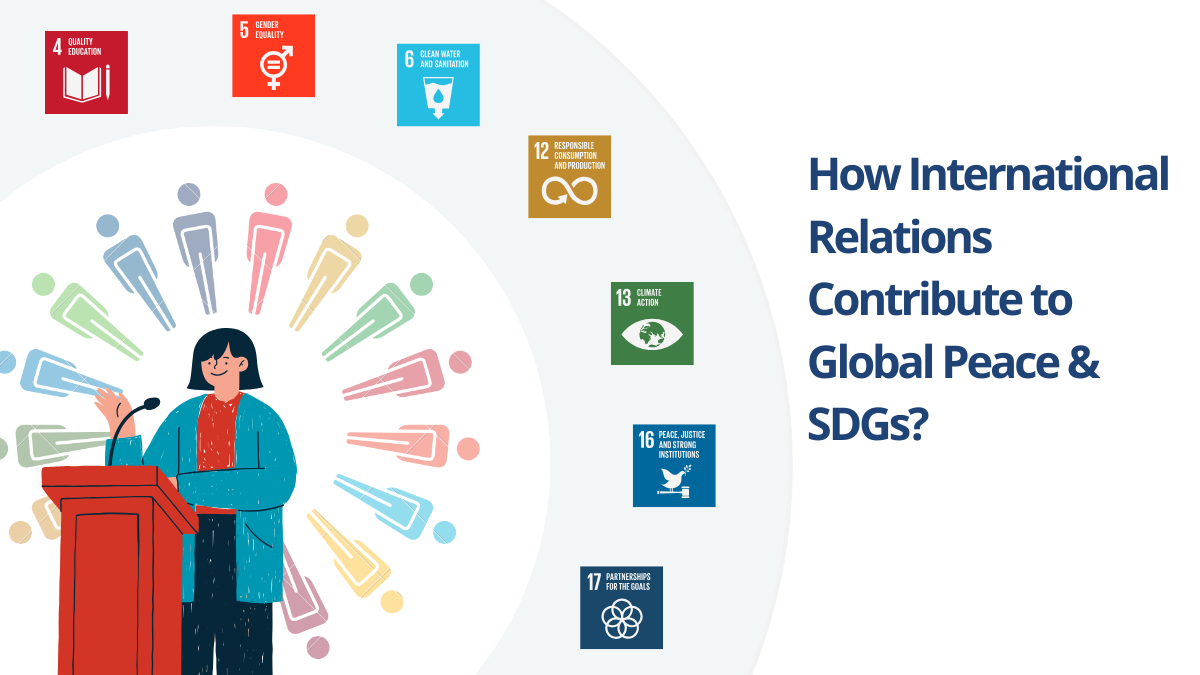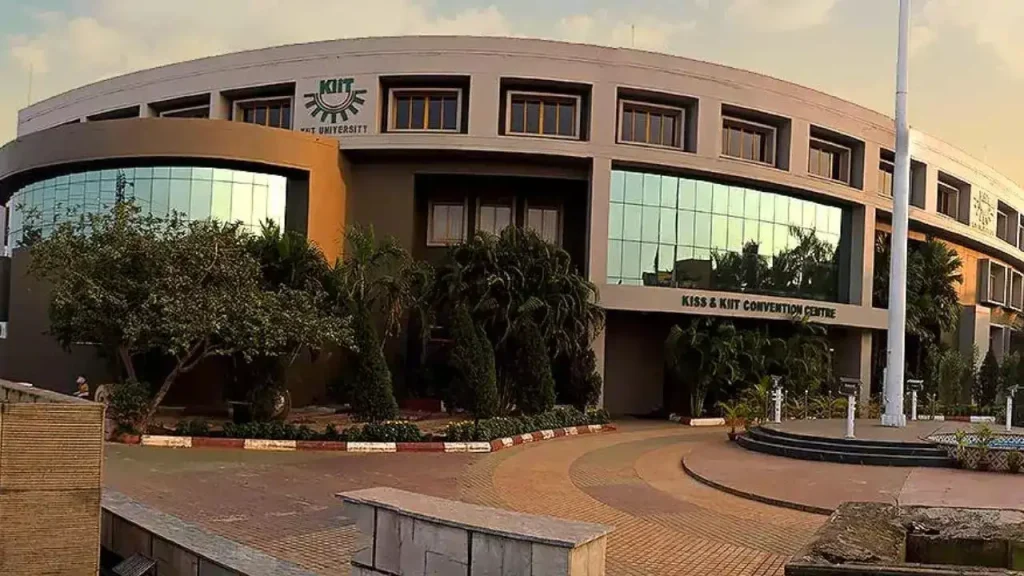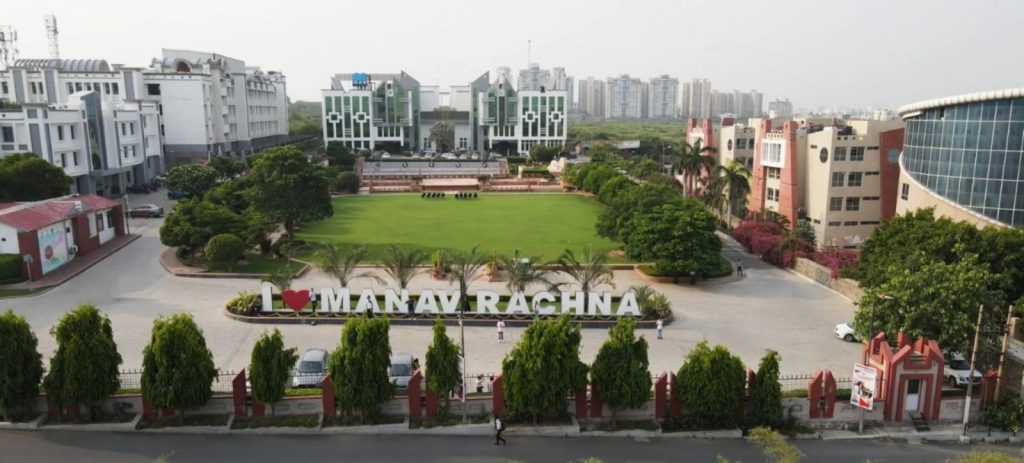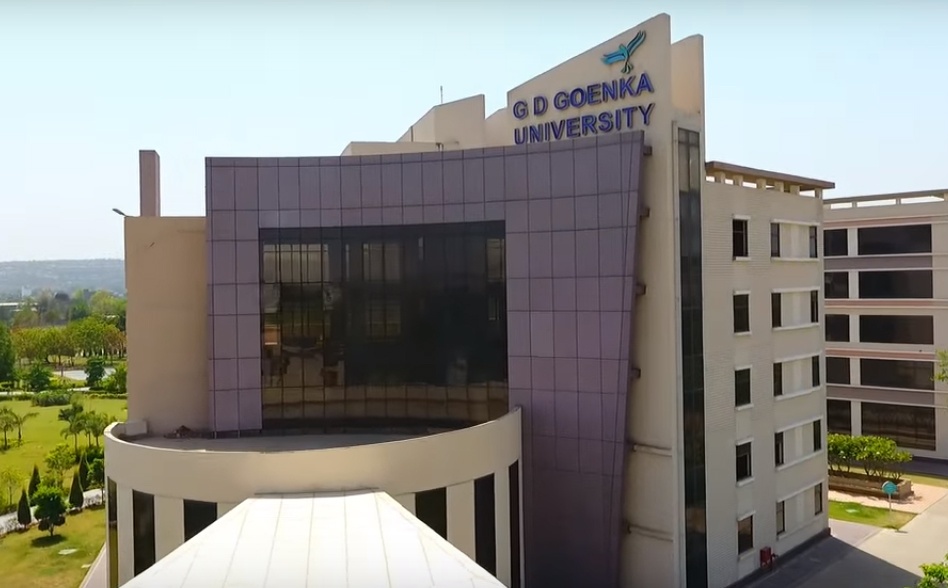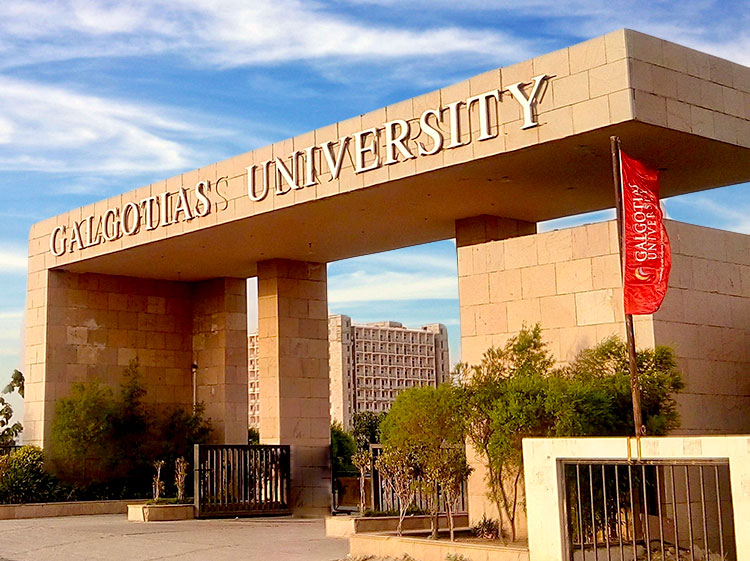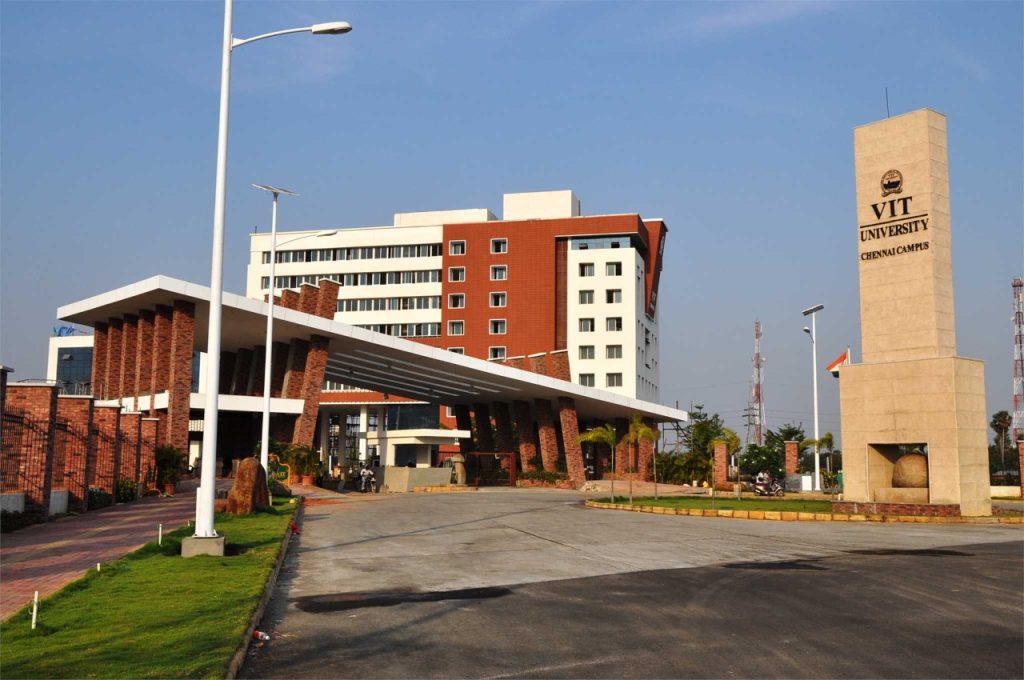What are SDGs?
In 2015, the United Nations adopted Sustainable Development Goals (SDGs), otherwise known as Global Goals, as a universal call to ensure that by 2030 all people enjoy peace and prosperity. SDGs address important global challenges such as poverty, inequality, climate change and lead us towards building a peaceful world. International Relations (IR) plays a vital role in supporting these goals by promoting cross-cultural understanding, diplomacy, and global cooperation—key elements in addressing these challenges effectively.
Role of Education in promoting SDGs
International Relations (IR) education plays a pivotal role in advancing the United Nations Sustainable Development Goals (SDGs). It cultivates cross-cultural understanding, global cooperation, and strategic thinking—key elements in resolving complex policy challenges. With a growing emphasis on higher education and SDGs, IR programs are designed to help students engage with pressing issues like climate action, poverty, peacebuilding, and human rights. Students gain a deep understanding of how diplomacy and global governance impact sustainable development. Many universities contributing to global peace through IR now offer degrees specifically focused on sustainability and international cooperation.
These international relations degrees with SDG focus enable future diplomats, policymakers, and peacebuilders to make meaningful global contributions. Through SDG implementation in higher education institutions, IR empowers students to pursue careers in global peace studies and development. As such, international relations and sustainable development go hand in hand—building a more equitable and peaceful world for generations to come.
The Link Between IR Education and the United Nations’ SDGs
International Relations or IR as an academic course allows students to understand political, economic and social interactions on an international scale. International Relations and Sustainable Development Goals are closely interlinked as its multifaceted framework parallels with quite a few of the things SDG strives to achieve:
SGD 4 – Quality Education
SGD 12 – Responsible Consumption and Production
SGD 16 – Peace, Justice, and Strong Institutions
SGD 17 – Partnerships for the Goals
IR’s support towards the United Nations’ Sustainable Development Goals becomes clearly visible when we examine the elements of the curriculum that addresses challenges that affect people worldwide:
SGD 5 – Gender Equality
SGD 6 – Clean Water and Sanitations
SGD 13 – Climate Action
Students studying International Relations gain an in depth understanding of how organizations on a global level operate and how their policies are formed and executed.
Importance of Peace and Conflict Studies in 2025
The United Nations’ objective when they adopted the Sustainable Development Goals was to make sure that the world aligned with the Goals by 2030. 2030, being less than 5 years away, creates an intense pressure on not only the UN but also the world as it is the people’s responsibility to create a world where everyone can live peacefully. Peacebuilding as a career choice for students shows the importance and relevance of these matters, where they usually take a backseat as 96% of individuals are only concerned with their own financial security.
India’s Role in International Relations (IR) and Peacebuilding: Advancing Conflict Resolution through Education
Indian universities have started incorporating peace and conflict resolution techniques into their IR programs. These courses help students clear up disputes, give importance to peaceful problem solving and support development in underdeveloped regions. Education is the most powerful weapon that can be used to speed up the objective of the UN as word can be spread to the most number of people at a given point of time- whether it be through courses, seminars or through any other medium.
Building Global Partnerships through IR Programs
Global peace studies encourage students to engage and understand communities beyond borders. A number of Indian universities are partnering with international universities by facilitating student exchange programs, joint research and global dialogues. Some of these programs are:
1. The Indian Technical and Economic Cooperation (ITEC) program:
It is an initiative taken by the Ministry of External Affairs (MEA) and it offers training and capacity-building programs for individuals from countries abroad helping them in learning skills related to governance, management and technology.
2. The Global Initiative of Academic Networks (GIAN)
This program encourages international involvement in academia by inviting experts abroad to teach in Indian universities and conduct collaborative research. The focus is on enhancing educational standards and promoting international knowledge exchange.
3. The India-US Science and Technology Cooperation
The Indo-US Science and Technology Forum (IUSSTF) promotes collaborative research between scientists and engineers from both countries. It holds joint research on climate change, space exploration and medical technologies.
4. The Vibrant Gujarat Global Summit
This event, organized by the Government of Gujarat and facilitated by Gujarat Industrial Development Corporation (GIDC), brings together global business leaders, policymakers, and professionals to discuss global economic challenges, innovations, and opportunities. It is a major platform for dialogue on sustainable development, business, and technology.
Indian Universities that Help Adancing IR and the SGDs
Numerous universities across India provide SGD focused IR education. Some of the best institutions for students willing to pursue a career in the same are as follows:
1. Kalinga Institute of Industrial Technology (KIIT)
Promotes interdisciplinary learning in law, IR and actively engaging students in SDG-focused research.
2. Manav Rachna Institute of Research and Studies
Offers programs in International Studies with modules that align with the SDGs, Model United Nations (MUN) and field visits.
3. GD Goenka University
Provides courses that train students to take a lead on climate action and global governance.
4. Galgotias University
Incorporates SGD awareness in its International Relations and political science courses with initiatives that promote peace, justice and responsible citizenship.
5. Vellore Institute of Science (VIS)
Connects social and technical science programs in order to create real world impact with programs that encourage students to help the UN achieve their goal.
From the Classroom to the UN: Student Voices in Diplomacy
The impact of students of International Relations is evident through their active engagement in global diplomacy. An increasing number of students from Indian Universities are participating in the UN Youth Assembly, Commonwealth Youth Forum and Regional summits.
Internships with the Ministry of External Affairs, UN agencies and other similar organizations provide experiential learning. Model United Nations or MUN gives students hands-on experience in diplomacy, negotiation and multinational cooperation. These experiences help a child in a classroom make their way to the UN, where their views and opinions help solve complex global issues.
How Students of IR Impact Sustainable Development
Students of International Relations are used in different areas to support the SDSs through their own unique channels:
1. Policy Formulation:
Graduates of IR help shape inclusive and effective policies that align with Global Goals as they have an in-depth knowledge of global governance.
2. Advocacy and Awareness:
Many students lead campaigns on climate responsibility, education rights, reduction of inequality and other socio-political issues in order to spread awareness, aligning their goals with that of the UN’s.
3. Research and Innovation:
Academic research in global topics allows students to explore sustainable models of development, conflict resolution strategies and diplomatic solutions to global crises.
4. Capacity Building:
Working with NGOs and other organizations that carry out the same type of work helps students strengthen academic institutions in communities not as developed as others.
SDG Implementation in Higher Education Institutions
India’s National Education Policy (NEP) 2020 advocates to implement SDG policies in higher education. The policy encourages universities to promote sustainability in both academic programs and social engagements.
Research from the Journal of Higher Education Policy and Management shows that Indian Universities are trying to integrate institutional goals with the SDGs. Universities are incorporating courses and seminars about environmental sustainability, human rights, work and economic growth among others. This ensures that their students are not only educated on the topic, but also inspired to bring about a change.
Peacebuilding as a Career Path for IR Students
Peacebuilding as a career path for IR students is gaining importance, particularly because of the growing global instability. Individuals pursuing careers in humanitarian aid, international law and global health are in high demand. An increasing number of students from Indian Institutions are joining international organizations such as the United Nations, the International Committee of the Red Cross and Médecins Sans Frontières.
Universities like the Institute of Peace and Conflict Studies (IPCS), New Delhi support professionals by providing research fellowships, opportunities to publish their work and working on peace missions.
Looking into the future, the relationship between International Relations and Sustainable Development goals becomes increasingly significant. Higher education institutions are making an effort to incorporate SDGs into their curriculums in order to help reach the UN’s goal. The integration of international relations and sustainable development goals help raise a child in school from the grassroot level into a sought after professional who is equipped with all the necessary means and knowledge to bring about meaningful change.
Written by Manjul Kathotia.
